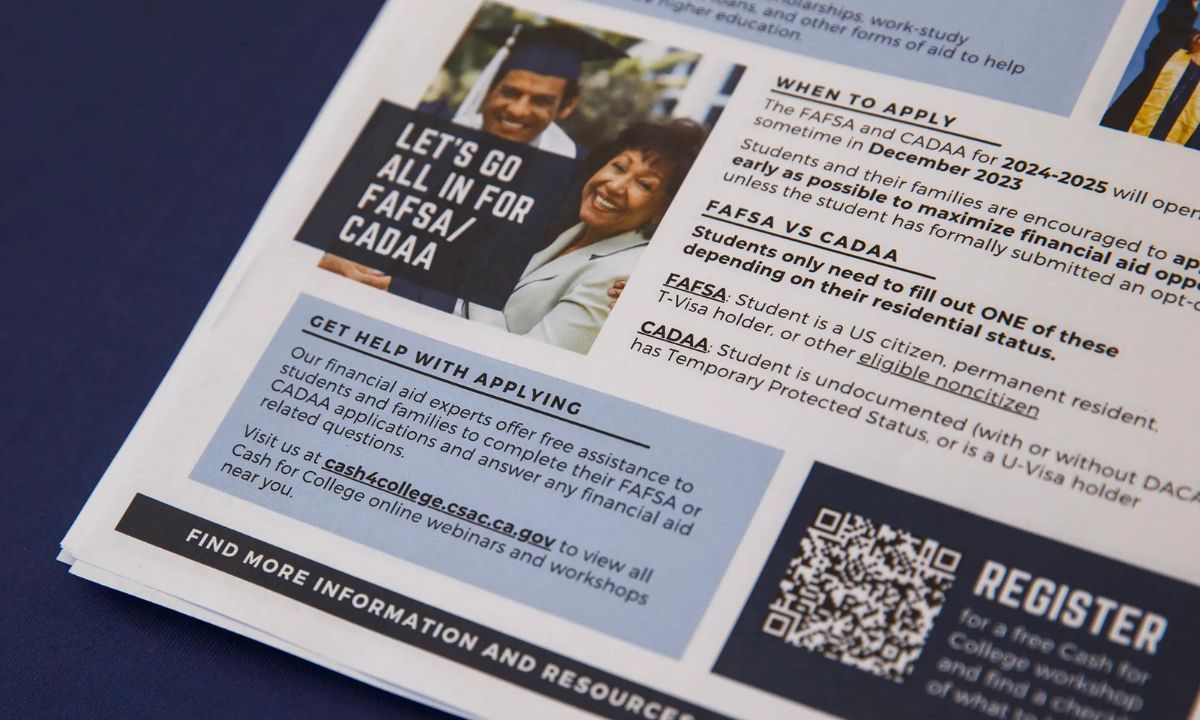California Financial Aid: Students May Get More Time to File
California may extend financial aid deadline for students impacted by federal delays.

Get stories like this delivered straight to your inbox. Sign up for The 74 Newsletter
Students seeking state financial aid have just two weeks remaining to beat a California deadline, even as thousands have been locked out of completing the federal application necessary to get that state aid — a problem that particularly affects students who are citizens but whose parents are not.
Now a prominent state lawmaker, Assemblymember Sabrina Cervantes, a Democrat from Corona and chair of the California Latino Legislative Caucus, is fast-tracking a bill to give affected California students additional time to complete the federal application and access more than $3 billion in state aid. If passed, Assembly Bill 1887 would move the current deadline from April 2 to May 2 and would go into effect immediately.
Its first hearing is scheduled for Monday at 3 p.m. Lawmakers realistically must approve the measure before next Thursday, when the Legislature goes on break and reconvenes April 1 — one day before the current state financial aid deadline.
Cervantes’ bill follows a technology crisis at the federal level that has prevented U.S. citizens from completing the Free Application for Federal Student Aid, or FAFSA, because their parents don’t have a Social Security number. It’s a new problem that only emerged this year and has generated a high degree of worry among the higher education community in California and nationally.
The tech glitch is basically this: The federal online application wouldn’t allow those parents to enter their financial information. Without those details, a student can’t finalize their federal aid application — and therefore cannot apply for state financial aid.
“The Legislature can highlight, double down on how unacceptable it is that certain U.S. citizens cannot submit a FAFSA,” said Gina Browne, a senior official with the California Community Colleges system, at a Senate hearing last week, “and I’m personally offended by it.”
The scale of the problem is hard to gauge. More than 100,000 California students last year submitted a federal aid application without their parents’ Social Security numbers. It’s not clear how many of those had parents who lacked a number or whether they chose to not share one with the government. Nationally, about 2% of applicants faced this issue in 2024, U.S. Department of Education officials said.
Remaining federal issues
The department said it fixed some of the problems this week but cautioned there are other errors blocking some students from finishing their applications. Those include instances in which a parent’s — or spouse’s — name doesn’t totally match the forms both the parent and student must complete.
The state Senate is also planning to push for an extension as part of its early-action packagethat debuted Thursday. California’s public colleges and universities urged a Senate subcommittee last week to support an extension of the state financial aid deadline. Key advisors for the Legislature and Gov. Gavin Newsom backed the idea then.
“We think that extending the state financial aid deadline is worth considering because it allows the U.S. Department of Education more time to resolve these technical difficulties,” said Lisa Qing, an official with the Legislative Analyst’s Office.
Chris Ferguson, of the California Department of Finance, said, “the administration is likely in a position to support such an extension.”
But a delay this year may not address other issues with the federal application that could emerge in 2025, said Jake Brymner, a senior official with the California Student Aid Commission.
Parents without Social Security numbers now have to confirm their identity to complete FAFSA, such as by uploading identifying documents. “Depending on the national political environment,” students “may have some additional concern about sharing family members’ information with a federal agency as they try to seek financial aid,” Brymner said.
Brymner’s implication is that families may worry if Donald Trump wins the presidential election this year. The Republican nominee reportedly plans a mass deportation of undocumented immigrants, replete with large camps, if he returns to the White House.
The commission has explored using another application for state financial aid — currently reserved for undocumented students — to bypass the federal technical glitches this year affecting U.S. citizens. The state doesn’t share information on that application with the federal government.
This story was originally published on Cal Matters.
Get stories like these delivered straight to your inbox. Sign up for The 74 Newsletter

;)